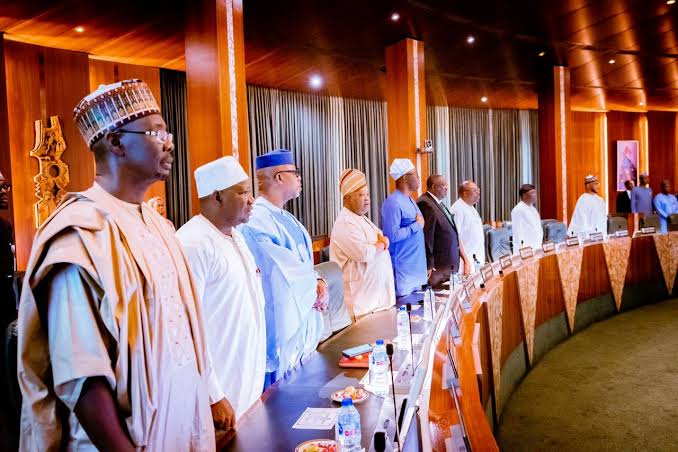News
FAAC Allocations: SERAP Drags Wike, Govs To Court

The Minister of the Federal Capital Territory (FCT), Nyesom Wike alongside thirty-six (36) state governors have been dragged to court over their alleged failure to account for the spending of trillions of the Federation Account Allocation Committee (FAAC) allocations collected by their states and the FCT since 1999.
They were dragged before the Federal High Court, Abuja, by the Socio-Economic Rights and Accountability Project (SERAP) sequel to reports that FAAC disbursed N1.123 trillion to the federal, state, and local governments for March 2024.
It would be recalled that the federal, state, and local governments had shared N1.208 trillion in April. States collected N398.689 billion in March, while they collected N403.403 billion in April.
In the legal action marked FHC/ABJ/CS/666/2024, SERAP is asking the court to “direct and compel the governors and Mr Wike to publish spending details of the FAAC allocations collected by their states and the FCT since 1999 including the list and locations of projects executed with the money.”
The group is also praying to the court to “compel the governors and Mr Wike to invite the Economic and Financial Crimes Commission [EFCC] and the Independent Corrupt Practices and Other Related Offences Commission [ICPC] to probe any allegations of corruption linked to the allocations and to monitor how the money is spent.”
According to the suit, SERAP is contending that “Nigerians ought to know in what manner public funds including FAAC allocations, are spent by the governors and FCT minister.
“Opacity in the spending of the FAAC allocations collected by the governors and Mr Wike would continue to have negative impacts on the fundamental interests of the citizens.”
While arguing that trillions of FAAC allocations received by Nigeria’s 36 states and the FCT have allegedly gone down the drain, SERAP posited that the resulting human costs directly threaten the human rights of socially and economically vulnerable Nigerians.
In positing that without the information on the spending details of the FAAC allocations, Nigerians cannot follow the actions of their states and the FCT, and they cannot properly fulfil their responsibilities as citizens, the group insisted that “Directing and compelling the governors and the FCT minister to provide the information sought and widely publish the spending details of the FAAC allocations collected by them would serve legitimate public interests.”
SERAP said, “The failure by the governors and the FCT ministers to account for the spending of the FAAC allocations collected by them is entirely inconsistent and incompatible with the Nigerian Constitution 1999 [as amended] and the country’s international anti-corruption obligations.”
The suit instituted on behalf of SERAP by its lawyers, Kolawole Oluwadare, Kehinde Oyewumi and Andrew Nwankwo, read in part: “States and the FCT should be guided by transparency and accountability principles and proactively account for the spending of the FAAC allocations collected by them.
“Secrecy in the spending of FAAC allocations collected by the governors and the FCT minister also denies Nigerians the right to know how public funds are spent. Transparency in the spending would allow them to retain control over their government.
“The governors and FCT minister have a legal obligation to provide the information sought including the list of specific projects completed with the FAAC allocations collected, the locations of any such projects and completion reports of the projects.
“The information sought should also include details of the salaries and pensions paid from the FAAC allocations collected, as well as the details of projects executed on hospitals and schools with the FAAC allocations.
“Despite the increased FAAC allocations to states and FCT, millions of residents in several states and the FCT continue to face extreme poverty and lack access to basic public goods and services.”
No date has been fixed for the hearing of the suit.
-

 Opinion5 days ago
Opinion5 days agoThe Clout-chasing Dipo Awojide By Comrade Da’Peace
-

 News4 days ago
News4 days agoRamadan, Lent: Shettima Calls For National Unity And Compassion
-

 Opinion4 days ago
Opinion4 days agoReinventing Osun’s Economy Through Dagbolu Intl. Trade Centre: From Quiet Market Lessons To Regional Trade Revolution By Adeboye Adebayo
-

 News4 days ago
News4 days ago‘Wike Factor’: Another PDP Chairmanship Candidate Steps Down For APC In FCT










